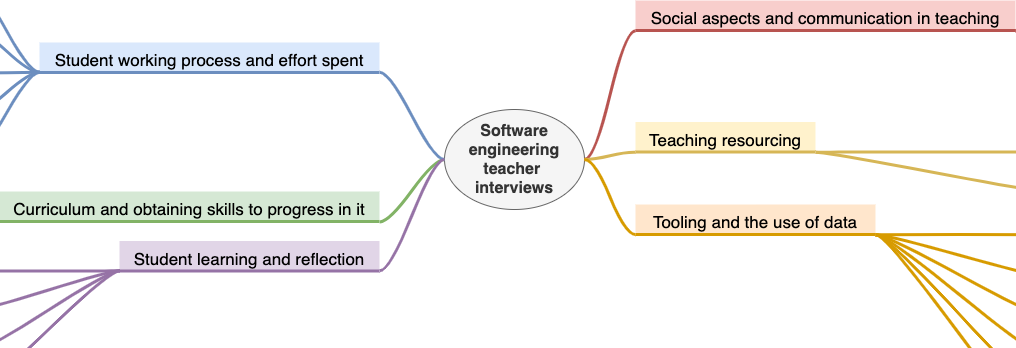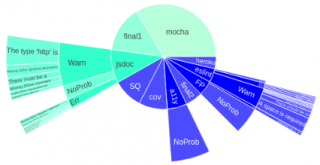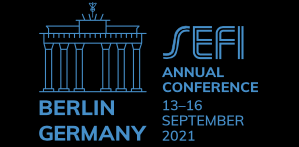SEFI2021 – Blended Learning
SEFI, the European Society for Engineering Education. The 2021 edition was the 49th annual SEFI conference and its theme was to focus on the implications of the pandemic and online teaching brought by it on the Engineering Education in Europe and worldwide. The contributions from CS focused on the topic from the point of view of the learning path visualisation, automatic grading as well as teaching ethics to engineers.
Working-life ethical issues faced by engineers
Ulla-Talvikki Virta ja professor Hannu-Matti Järvinen presented their ground breaking work on a hot topic of the ethical issues engineers face in their work. The motivation of the paper was to figure out what kind of ethical material or studies should be offered to the engineering students. The paper was based on 433 responses from engineers. There has been a lot of discussion about the ethical impacts of artificial intelligence but none of the respondents reported on such problems. Over half of the problems were related to (bad) supervision, gender issues and other human-related issues. Out of the rest, one clear subgroup was loyality conflicts – loyality towards the employer or loyality towards the customer.
In addition to the ethical issues faced the study asked about the support given and wanted. For most cases, the employees expected the employer to offer or organise help. Legal help was an exception: there the most common choice was the labour union. Overall, the respondents felt they were left alone with their ethical problems.
Towards Stakeholder Specific Visualization of Learning Paths in Software Engineering Teaching
Outi Sievi-Korte, Terhi Kilamo and professor Kari Systä joined forces with colleagues Henri Bomström, Elina Annanperä, Markus Kelanti and Kari Liukkunen from University of Oulu to investigate what kind of views teachers want to take to their courses and what kind of information teachers see as valuable visualizations on learners’progress. The study found that software engineering teachers lack means to track student progress both on course and degree program level. Additionally, the results indicate a lack of tools for identifying and contacting students that are lagging behind or have problems with completing assignments. This paper got selected as the best research paper in the conference on the grounds that the visualization of learning paths can help create transparency to the learners’ progress as well as support teachers to both proactively steer the learning process and indentify those students in need of more support. The paper’s presentation and the questions from the audience were expertly handled by our Oulu colleague Henri.

Having it all: using automatic grading to reduce personnel workload while increasing the quantity and quality of feedback to students

Mikko Nurminen, Pia Niemelä and professor Järvinen focused on how automatic assessment of exercises can help in online teaching to ensure the uniformity of feedback and equal treatment, and most importantly, reduce routine work required from the course staff. When the course staff is less burdened by routine work they can concentrate on assisting students through online discussion channels targeted for the students needing more help and support. The grading system intorduced also complied with the DevOps practices common in the IT industry today, therefore training students in common worklife skills thus increasing their employability.
“Why is this course pushing functional programming?”– educating well-rounded web developers with functional JavaScript
In their second contribution to the conference, Mikko, Pia and Hannu-Matti investigated the inclusion of selected features of the functional programming (FP) paradigm on a introductory level web development course. JavaScript was used to familiarize students with FP. Specifically the study asked which paradigms students were aware of before the course, which JavaScript topics they were stuggling with and what the course staff could do to make those concepts easier to grasp. The students were aware of programming paradigms mainly object-oriented but also FP. More support should be offered when learning new paradogms, e.g. more concrete instructions and hands-on videos should be provided. However, exercise results indicated that the students had learned to use the FP features included on the course even though they were considered difficult.
Having conferences online – a sign of the times
Online conferences turned out to be better at keeping to schedule than their prepandemic predecessors. SEFI included also a nice online magician’s workshop, a virtual tour of Berlin and some online yoga. It can be said that the good and the bad of online teaching was experienced also in a pandemic era education conference 🙂





